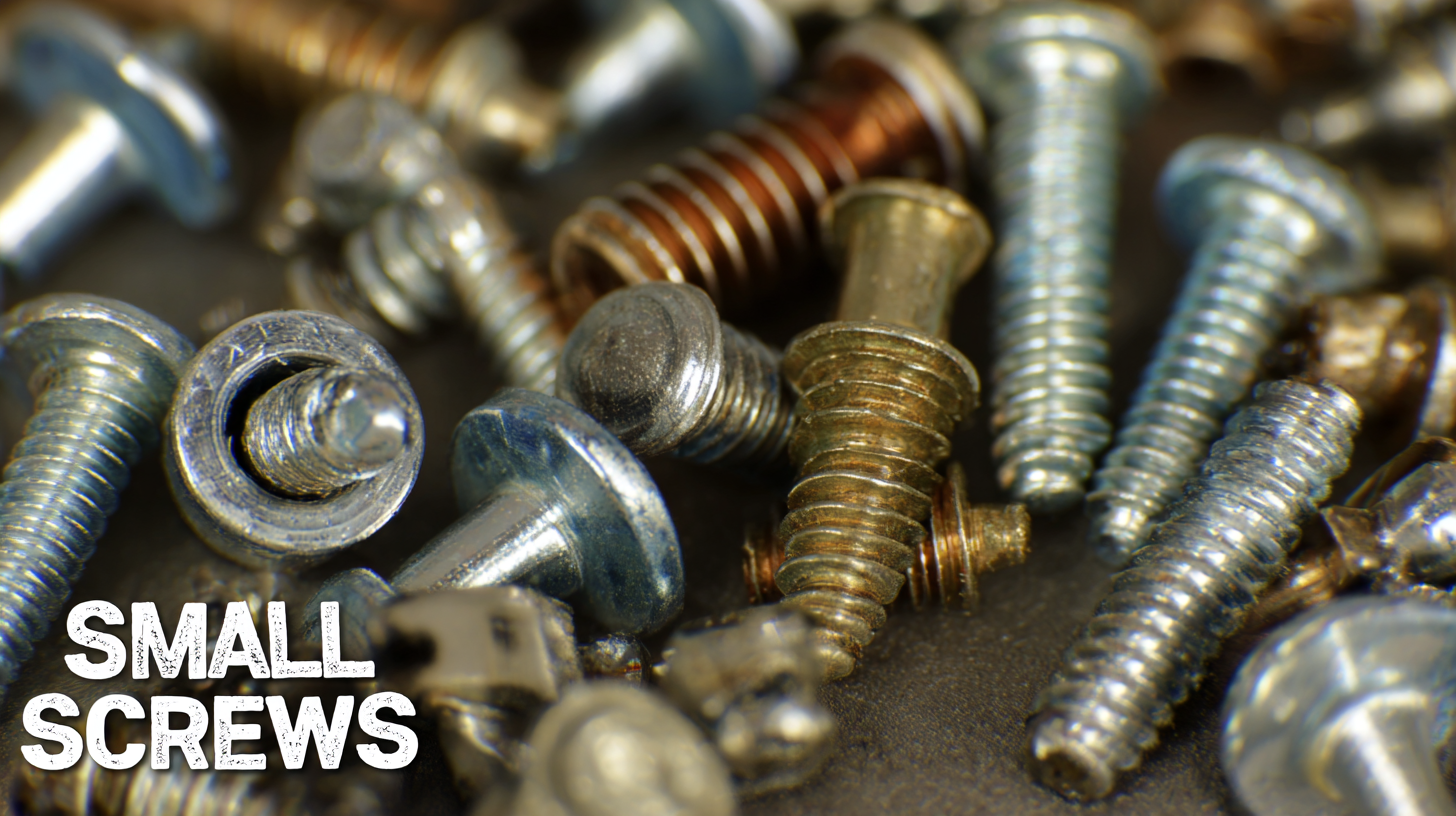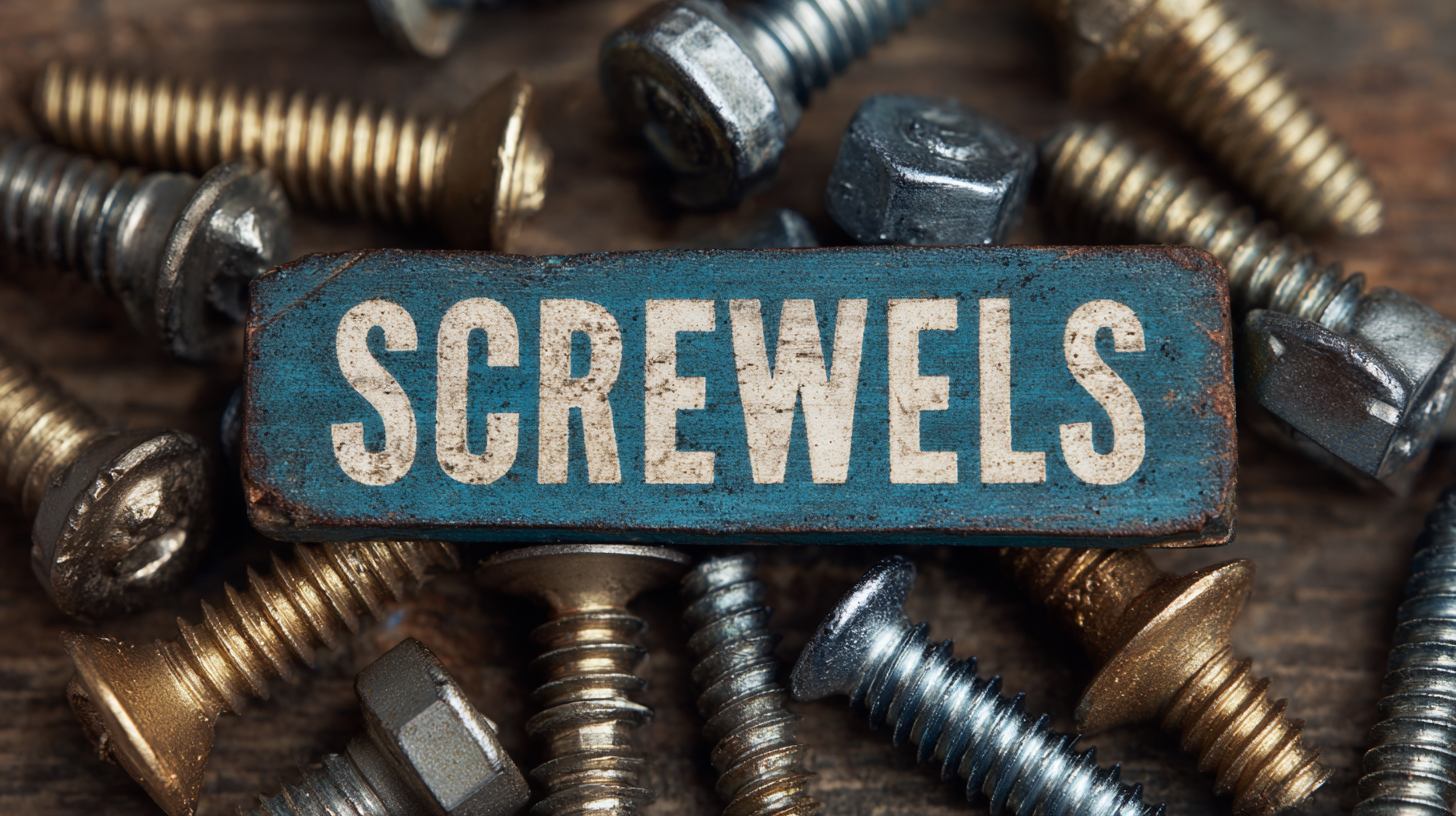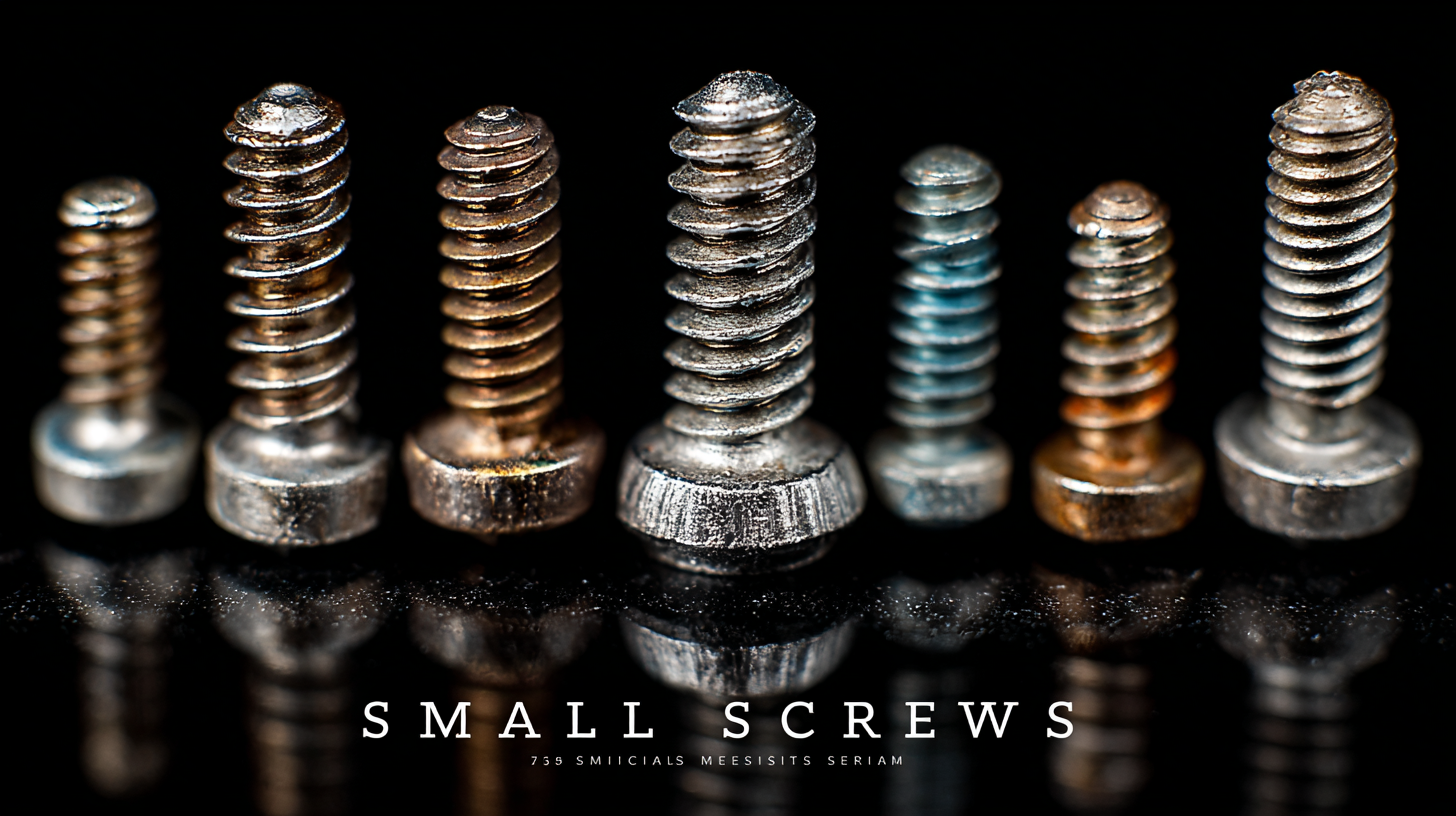In the world of manufacturing and construction, the choice of fasteners is critical for ensuring the durability and integrity of any project. Among these, small screws play a pivotal role due to their versatile applications across various industries, from electronics to automotive.

According to a recent industry report from Freedonia Group, the global demand for fasteners, including small screws, is expected to reach 128 billion units by 2025, with a significant shift towards lightweight and durable materials. This growing market underlines the importance of understanding best specifications and selecting the appropriate type of small screws tailored to specific needs.
Whether you are working on intricate electronic devices or assembling furniture, having a comprehensive checklist for evaluating small screws can streamline the selection process, ensuring that you choose the right fastener for your project.
When selecting small screws for your project, several key specifications must be taken into account to ensure optimal performance and reliability. Key considerations include thread type, material, length, and diameter. According to the Industrial Fasteners Institute, the most common thread types, such as coarse and fine, serve different purposes, with fine threads providing better tension in precision applications, while coarse threads are preferred for quick assembly and disassembly.
Material also plays a critical role in screw selection. Stainless steel is often favored for outdoor or humid environments due to its corrosion resistance, while nylon screws serve as an excellent alternative for non-conductive applications. A study from the Fastener Quality Act indicates that selecting the appropriate screw material can enhance longevity by 50% compared to standard options. Additionally, the length and diameter of screws should be matched with the thickness of materials being joined, aligning with recommendations from the American National Standards Institute, which emphasize that correct sizing can prevent material damage and improve joint strength.
 When it comes to small screws, understanding the various types and their unique applications is crucial for any project. Common types include machine screws, wood screws, sheet metal screws, and self-tapping screws. Machine screws are designed for fastening metal components, often requiring a nut or a tapped hole for secure installation. Wood screws, on the other hand, have pointed ends and coarse threads that provide better grip in wooden materials. Sheet metal screws are ideal for fastening metals together and can be used in multiple materials, while self-tapping screws create their threads in soft materials, eliminating the need for pre-drilled holes.
When it comes to small screws, understanding the various types and their unique applications is crucial for any project. Common types include machine screws, wood screws, sheet metal screws, and self-tapping screws. Machine screws are designed for fastening metal components, often requiring a nut or a tapped hole for secure installation. Wood screws, on the other hand, have pointed ends and coarse threads that provide better grip in wooden materials. Sheet metal screws are ideal for fastening metals together and can be used in multiple materials, while self-tapping screws create their threads in soft materials, eliminating the need for pre-drilled holes.
Tip: Always consider the material of the screw in relation to the material you are fastening. For example, using stainless steel screws in outdoor settings can prevent rust and ensure longevity.
Another aspect to keep in mind is the screw’s head type. Options include flat, pan, and round heads, each offering different aesthetic and functional benefits. Flat heads are perfect for countersinking, providing a flush finish, while pan heads allow for more surface area to distribute the load, making them ideal for thicker materials.
Tip: Opt for the right drive type (Phillips, slotted, or hex) that matches your tool, ensuring ease of installation and reducing the risk of stripping the screw. Choosing the correct small screw can make a significant difference in the durability and appearance of your finished project.
When selecting small screws for your project, understanding the material properties is essential, especially when considering strength, durability, and corrosion resistance. Materials like stainless steel and titanium are widely recognized for their exceptional strength, making them ideal for applications requiring durability and reliability. Stainless steel not only offers excellent tensile strength but also provides corrosion resistance, ensuring longevity in various environments.
Additionally, there has been a growing interest in eco-friendly alternatives, such as composites made from natural fibers. These materials offer unique advantages, combining good mechanical properties with a reduced environmental footprint. When selecting small screws, considering a hybrid approach that incorporates these sustainable materials could be beneficial, especially as industries shift towards greener practices. This forward-thinking strategy can enhance project outcomes while supporting sustainability initiatives, providing a well-rounded solution for modern engineering challenges.
| Screw Type | Material | Tensile Strength (MPa) | Corrosion Resistance | Typical Applications |
|---|---|---|---|---|
| Machine Screw | Stainless Steel | 520 | Excellent | Machinery, Electrical Equipment |
| Self-tapping Screw | Carbon Steel | 370 | Moderate | Sheet Metal, Construction |
| Wood Screw | Brass | 300 | Good | Furniture, Carpentry |
| Sheet Metal Screw | Galvanized Steel | 500 | Very Good | Metal Panels, Ductwork |
| Deck Screw | Coated Steel | 400 | Excellent | Outdoor Decking, Fencing |
When embarking on a project that requires small screws, determining the right screw size and length is crucial for optimal performance. The first step is to assess the materials you'll be fastening. Different materials may require different screw sizes to ensure a firm grip without causing damage. For instance, softwoods like pine often allow for longer screws without splitting, while hardwoods may necessitate smaller diameters or shorter lengths to maintain structural integrity.
Next, consider the load the screw will support. Heavier loads will typically require longer and thicker screws, as they provide greater holding strength. Additionally, factors such as the type of joint—the angle and depth of the drive—play a significant role in the effectiveness of the screw. It's essential to check the manufacturer's specifications for guidance on optimal dimensions and to experiment with sample screws. Doing so will help you achieve the best performance in your project, ensuring durability and reliability in the final outcome.

The fasteners industry is witnessing a remarkable evolution, particularly in small screw technology. Recent reports indicate that the global screws market is expected to grow at a CAGR of 4.5% from 2023 to 2028, driven by advancements in materials and manufacturing processes. Innovations such as corrosion-resistant coatings and smart screws equipped with sensors are gaining traction, enhancing functionality and longevity in various applications, from electronics to automotive.
Tip: When selecting small screws, it’s essential to consider the material properties. For instance, stainless steel screws offer excellent corrosion resistance, while titanium screws provide lightweight strength ideal for high-performance applications.
Moreover, sustainability is becoming a significant trend in small screw production. Manufacturers are increasingly adopting eco-friendly practices, utilizing recycled materials to minimize environmental impact. Emerging technologies such as 3D printing are also poised to revolutionize the way small screws are fabricated, offering customized solutions with reduced waste.
Tip: Keep an eye on industry certifications and standards for quality assurance. This ensures that you choose screws that not only meet your specific project needs but also adhere to safety regulations.
